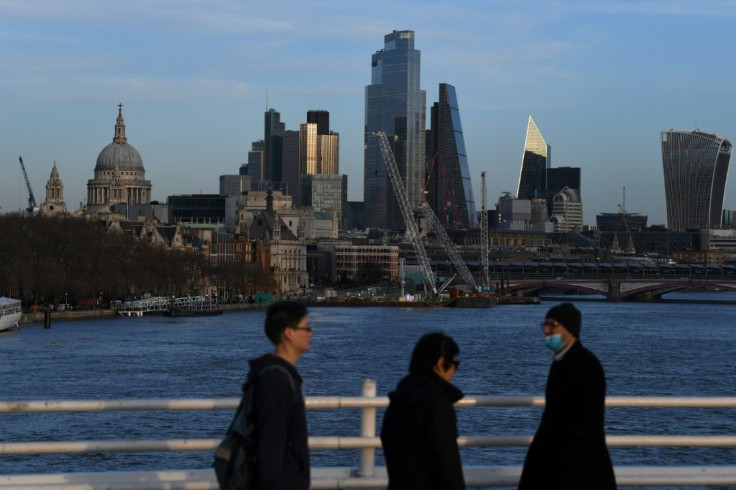UK Presses EU On Finance Deal For Post-Covid Recovery
Bank of England governor Andrew Bailey on Wednesday pressed the EU to agree a post-Brexit financial services deal by next month for the sake of pandemic recovery on both sides of the Channel.
The costs of the City of London's lack of access since Brexit were laid bare in new data showing Amsterdam last month overtook London as Europe's top share trading hub.
Rebutting some of the demands made by Brussels in return for the City to regain access to EU states, Bailey said Britain had no intention of creating "a low-regulation, high-risk, anything-goes financial centre and system".
"We have an opportunity to move forward and rebuild our economies, post-Covid, supported by our financial systems. Now is not the time to have a regional argument," the UK central banker said in a speech.
Financial services -- a key driver of the British economy -- were largely omitted from the last-minute Brexit trade deal agreed between London and Brussels in late December.
So from January 1, Britain's financial sector lost access to the EU's single market and its European "passport", a means for UK financial products and services to be sold in the EU.
Both sides are instead working towards a March deadline to carve out an "equivalence" regime under which each would recognise the other's financial regulation.
In its absence, Euronext Amsterdam together with two other Dutch share markets last month displaced London's historic role as the main equities hub for Europe, the Financial Times said.

An average of 9.2 billion euros ($11.2 billion/?8.1 billion) in shares were traded each day on the Amsterdam markets in January, more than four times their December figure and higher than London's 8.6 billion euros, the FT said.
However, UK officials have played down fears of an accompanying exodus of jobs from London.
Bailey last month said up to 7,000 jobs have so far been relocated to rival centres in the EU including Amsterdam -- well down on doomsday predictions of as many as 50,000 losses.
But in Wednesday's speech and a later interview to the Daily Telegraph, the central bank chief said Brussels was being unreasonable in its negotiating demands, in an apparent bid to grab business from London.
"Is the EU going to cut the UK off from itself? There are signs of the intention to do so at the moment, but I think that would be a mistake," he told the newspaper.
"I think that would lead to the fragmentation of markets," Bailey said, warning that would in turn lead to higher costs for everyone including European consumers.
The EU should instead accept healthy competition, Bailey stressed in his speech.
"I believe we have a very bright future competing in global financial markets underpinned by strong and effective common global regulatory standards," he said.
The finance dispute is part of a wider array of controversies besetting cross-Channel relations since Britain's Brexit divorce took full effect at the end of last year.
On Thursday, senior UK minister Michael Gove is due to hold crisis talks in London with EU commission vice president Maros Sefcovic over troubled trading arrangements for Northern Ireland.
© Copyright AFP {{Year}}. All rights reserved.




















